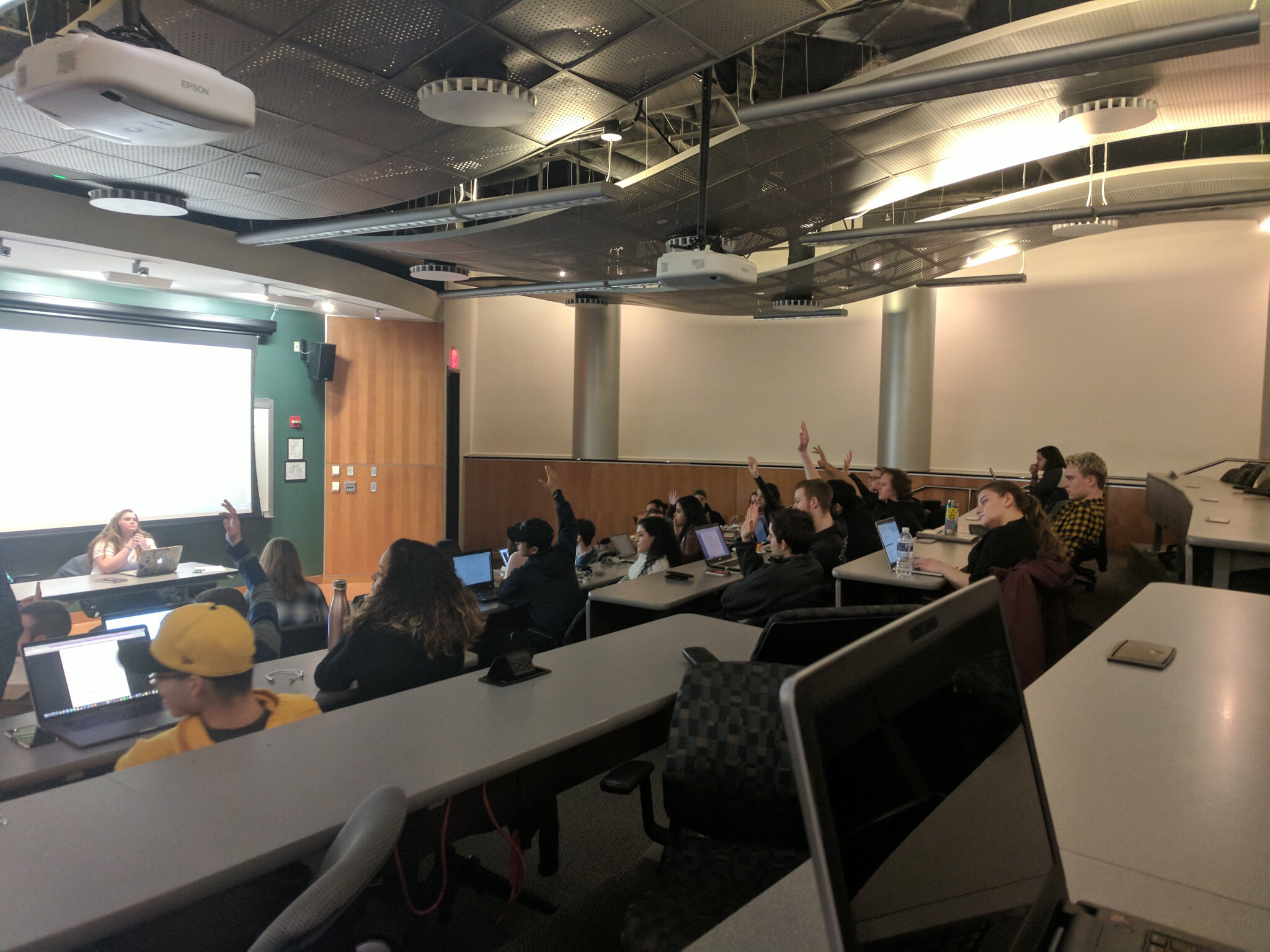Senators and Oversight Committee members Matthew Cunningham and Lisa Mengotto proposed Resolution S-18S-007, the Senator Terms and Expectations for Productive and Useful People Act, or STEP UP Act for short. This resolution was created to set some new guidelines for senators to follow, and, frankly, with the exception of one, most of them were exactly the same as the previous guidelines. The primary new guideline? A Senator must work individually on an initiative… [that] shall be defined as a goal that benefits the student body.” In other words, Cunningham and Mengotto want all senators to actually do something, not just a select few. This is a fabulous idea.
Surely, some senators would have opposition to actually doing something, right? That would be correct! Initially, some senators had a problem with removing Senate appeal for sending a mandatory email mandated by the Public Relations committee. Sending out emails of important information would require senators to put in more effort to represent their students and communicate with them. In order to represent them, at a minimum they would need to communicate with them. By not sending emails, they are not communicating with their constituents. Do some senators not care about their job, to represent the student body, the very principle upon which they were elected? Senators should be in communication with their constituents and keep them in the loop. While the appeal is a check on the Public Relations committee, this could easily be abused by senators who are feeling lazy. They can easily appeal to try to keep the student body in the dark and prevent them from doing any work and being held accountable as a senator.
However, that was a short discussion, and the next discussion focused on event attendance. Currently, each senator must attend five SGA-funded events per semester. Cunningham and Mengotto changed their requirement to one event per month – essentially equaling the same amount of events per semester. This would make senators actively attend events throughout the semester, as opposed to piling them all in at the end of the semester, which Speaker of the Senate Nic Nuilla says “has been a problem in the past.” Additionally, even senators with no intent of reelection would have to fulfill their event requirements to maintain their seat during the Spring semester, as mentioned by Mengotto. President Lucas Gallo was in support of this change: “it adds intermittent accountability. Having the one per month allows the Speaker to see that they did not do it this month.” After discussion, it was changed back to five per semester with a minimum of one event per month. A fair compromise.
But the discussion didn’t stop there — now some senators are concerned with what defines a month. After a riveting discussion, the Senate defined a month in this instance as a “full month of the academic calendar” despite the words “month,” “day,” and “week” being used elsewhere in the constitution without definition. Seems like a reason just to raise problems with the resolution.
And then Senator Matthew Cunningham explicitly acknowledged the elephant in the room: Point 6, making senators actually do something by having an initiative each month. Out of all the senators who ultimately voted no, only one senator spoke about any issues they had with the bill. Senator Ben Reydel stated, “I think these are vague requirements. I do not feel comfortable with this. In two years nobody will be able to answer these questions.” However, Senator Cunningham said that in order to pass the Initiative Status update, senators simply should “Just document what [they] are doing,” even if it is just going to meetings. Nothing difficult, but it would actually require senators to do something, which is apparently a lot to ask for – asking an elected official to do something.
Now, the bill failed with a 12-15 vote. Due to the SGA not voting by roll call, I was only able to identify some of the senators that voted no. I demand that the following senators that voted no without voicing a concern during discussion STEP down immediately: Allen Best, Isabella Biesty, Jake Catalano, Lauren Chen, Evan Kainer, Austin Luo, Julia Meyn, Mira Mikhael, Jesse Priest, Alex Reina, Harrup Singh, Nathan Smith, and Ryan Tom. None of these senators want to be held to any standards and serve the student body. They must submit their resignation, effective immediately. And no, stating your reason after the bill failed does not count; you didn’t let anyone try to address your concerns.
Additionally, none of these senators reached out to Cunningham or Mengotto before the meeting, which leads me to believe that they (and many other senators) do not even read the docket prior to each meeting. They are not staying informed and thus not doing their basic job as senators. How can you inform the student body if you don’t stay informed yourself? Disgusting.
However, on a positive note, props to everyone who spoke on behalf of the resolution and wanted to hold senators to an actual standard. This includes Senators Jimmy Sweeny, Jonathan Darlak, Melanie Caba, Matthew Cunningham, and Lisa Mengotto, as well as President Lucas Gallo.
Stay tuned for next week, when I’ll formally be joining the Senate for its discussion of what defines a month and a riveting debate about American Society of Quality’s constitution.

Be First to Comment